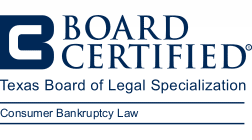When to Choose Chapter 13 Over Chapter 7 Bankruptcy
 Facing financial hardship can be overwhelming, and deciding between Chapter 13 and Chapter 7 bankruptcy is an important step in regaining control of your finances. While both options offer relief, they serve different purposes and suit different situations. A Texas lawyer can help you understand when opting for Chapter 13 could be more beneficial.
Facing financial hardship can be overwhelming, and deciding between Chapter 13 and Chapter 7 bankruptcy is an important step in regaining control of your finances. While both options offer relief, they serve different purposes and suit different situations. A Texas lawyer can help you understand when opting for Chapter 13 could be more beneficial.
It is important to note that every financial situation is unique. The information provided here is general guidance, and your specific case may have factors that change which option is most beneficial for you.
Differences Between Chapter 13 and Chapter 7
Before discussing when to choose Chapter 13, you should understand the main differences between the two bankruptcy types:
-
Chapter 7: Often called "liquidation bankruptcy," it eliminates most unsecured debts quickly, usually within three to six months.
-
Chapter 13: Known as "reorganization bankruptcy," it involves a three to five year repayment plan to pay off some or all of your debts.
When Chapter 13 Might Be a Better Option than Chapter 7
While Chapter 7 bankruptcy can provide quick relief for some, Chapter 13 offers unique advantages that may better suit your situation. Here are several scenarios where Chapter 13 could be the preferable choice:
You Have a Regular Income
Chapter 13 requires a steady, reliable income to make monthly payments throughout your repayment plan. If you have a stable job or consistent income source, Chapter 13 allows you to keep your assets while paying off debts over time.
You Want to Save Your Home from Foreclosure
If you are behind on mortgage payments and facing foreclosure, Chapter 13 can help you keep your home. It allows you to catch up on missed installments throughout your repayment plan while staying up to date on new payments.
You Have Non-Exempt Assets You Want to Keep
In a Chapter 7 bankruptcy, non-exempt assets may be sold to pay creditors. You can keep these assets under Chapter 13 by paying their value through your repayment plan. This can be particularly beneficial if you have equity in your home or valuable personal property.
You Have Debts That Cannot Be Discharged in Chapter 7
Certain debts, such as recent taxes or student loans, cannot be discharged in Chapter 7. Chapter 13 allows you to pay these debts over time, potentially with more favorable terms.
You Previously Filed for Chapter 7 Bankruptcy
If you filed for Chapter 7 bankruptcy within the last eight years, you may not be eligible to file again. However, you might still qualify for Chapter 13.
Your Income Is Too High for Chapter 7
If your income is above the median for your state and you fail the means test, you may not qualify for Chapter 7. In this case, Chapter 13 could be your best option for debt relief.
You Have a Co-Debtor on Personal Loans
Chapter 13 protects co-debtors on consumer debts, which Chapter 7 does not. This can be crucial to protect a family member or friend who co-signed a loan with you.
Reach Out to a Houston, TX Bankruptcy Lawyer for Help
While these points provide general guidance, your specific financial situation may have unique aspects that influence which bankruptcy option is best for you. Do not make this important decision without professional advice. A Conroe, TX bankruptcy attorney can help you determine which option may be ideal for you. Call The Fealy Law Firm, PC at 713-526-5220 for a free consultation.











